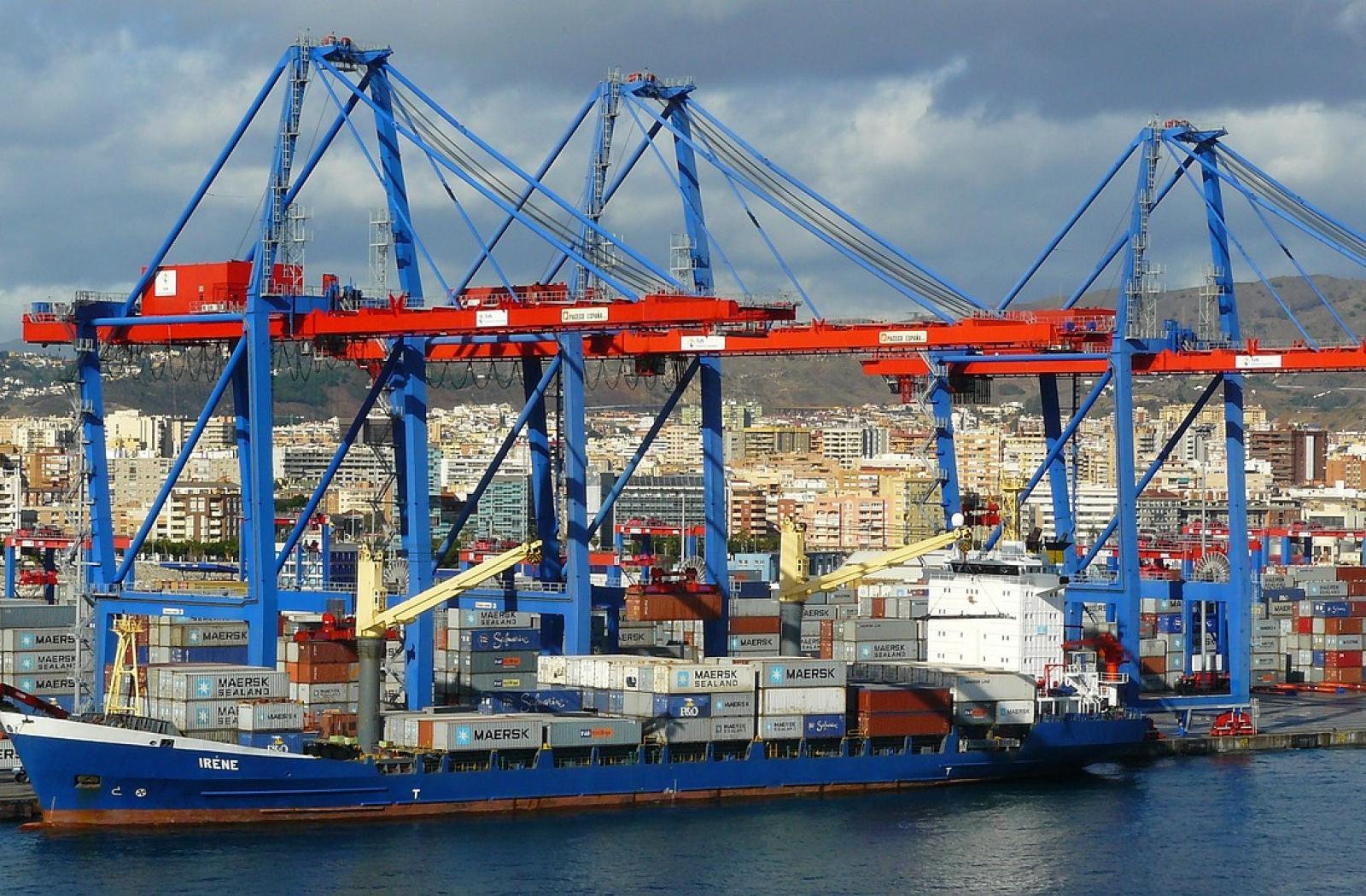A blog by Collin Zhuawu, Economic Adviser: Multilateral Trade in the International Trade Policy Section, Commonwealth Secretariat, London. Any views expressed are those of the author and do not necessarily represent those of the Commonwealth Secretariat.

The World Trade Organization’s (WTO) 13th Ministerial Conference (MC13) concluded in the UAE on 29th February with modest outcomes, headlined by a decision to extend the moratorium on e-commerce duties and the admission of two new WTO members, Timor-Leste and Comoros. However, key developmental issues remained unresolved.
Fisheries Subsidies Reform
Despite intense discussions on a draft text on fisheries subsidies and progress on certain issues, members failed to conclude the second phase of fisheries subsidies negotiations. Further delays in concluding the agreement will affect the livelihoods of the 260 million people dependent on marine fisheries globally.
As things stand, countries - including those with large-scale distant water fishing fleets responsible for depleting fish stocks - have retained their fisheries subsidies without any commitments for reductions. A failure to reach consensus on ways to discipline subsidies contributing to overcapacity and overfishing will prolong unsustainable fishing practices. It is essential for developing countries to continue advancing the fisheries development dimension in Geneva and ensure a developmental outcome.
Agriculture
Discussions on a draft text on agriculture focused on three critical areas: the balance across topics, deliverables for the most vulnerable members, and public stockholding (PSH) for food security purposes. Despite efforts, members did not find convergence on all issues.
The failure to find solutions represents a setback in pursuit of a predictable and inclusive agriculture trading system and in addressing food security concerns, particularly for smaller developing countries. It is imperative for members to engage in technical discussions — backed by stronger political will — to resolve the existing impasse on issues such as domestic support, PSH, Cotton and the Special Safeguard Mechanism; and establish fairer market access and disciplining measures related to export restrictions.
Discussions in Geneva should be linked to the essential role that agriculture plays in ending hunger, achieving food security, and improving nutrition going forward. WTO members must strive to balance their short-term goals with their long-term objective of establishing a fair and market-oriented agricultural trading system that benefits all countries.
Special and Differential Treatment (S&DT)
S&DT provisions are an integral part of WTO agreements that allow developing members, including LDCs, to enjoy more favourable and flexible treatment to help meet their development aspirations. Ministers adopted a declaration aimed at ensuring the precise, effective, and operational implementation of S&DT provisions within the Sanitary and Phytosanitary and Technical Barriers to Trade Agreements.
These agreements deal with food safety, animal and plant health, and technical regulations and standards, respectively. The declaration highlighted the need for improvements in training and technical assistance, transparency regarding commitment periods, and work on enhancing the implementation of S&DT for developing members, including LDCs, mandating a report on progress by December 2024.
In addition, ministers agreed on concrete steps to facilitate the transition for graduating LDCs. They also adopted a decision reaffirming their commitments to the ongoing Work Programme on Small Economies, which supports their unique needs. However, considerable work is still needed in Geneva to improve the application and operationalisation of all S&DT provisions as an integral part of WTO agreements.
Dispute settlement reform
Ministers adopted a decision recognising the progress made and instructing officials to accelerate discussions to resolve outstanding issues, including appeal/review and accessibility, and restore a fully functioning dispute settlement system by 2024. Post MC13, consultations on the way forward with respect to dispute settlement reform and the appointment of a new facilitator for the reform process have begun in Geneva.
To ensure and safeguard a strong MTS that delivers on development issues, the selection process for filling vacancies on the Appellate Body (AB) remains urgent. This requires expeditious reconstitution of the AB and the promulgation of rules to build trust in its procedures and operations.
Trade in Services
Acknowledging the significant contribution of services to the global economy, including their role in generating most economic output and job creation, ministers urged relevant WTO committees to continue their efforts in evaluating the lessons learned from the COVID-19 pandemic and swiftly develop robust strategies for managing future pandemics.
Ministers also endorsed the entry into force of new disciplines on services domestic regulation, which are expected to simplify regulatory procedures and reduce global trade costs by more than US$125 billion. This marks the first time an agreement among a group of WTO members has included a commitment to gender equality in service supply permits. Developing countries should consider ways of taking advantage of the agreement for their benefit.
E-commerce Work Programme
Ministers agreed to re-invigorate the E-commerce Work Programme, emphasising its development dimension and the needs of developing countries and LDCs. They highlighted the importance of addressing the digital divide and supporting the development of the digital economy in these countries, including by providing training and technical assistance for micro, small, and medium-sized enterprises. Ministers also expressed their commitment to deepen discussions on e-commerce-related topics, building on previous dedicated discussions.
They also agreed to examine the impact of a moratorium on customs duties on electronic transmissions, extending it until MC14 or 31 March 2026, whichever comes first. Both the moratorium on customs duties and the Work Programme are set to expire on this date.
Any future engagements on the Work Programme, including discussions on the moratorium, require developing countries to carefully assess the implications of all aspects under discussion, including the opportunities for export growth facilitated through technology, globalisation, and participation in global value chains. Furthermore, it should be viewed in light of the growing significance of digital trade.
Investment facilitation for development
Ministers considered a draft decision on incorporating the Investment Facilitation for Development (IFD) Agreement into Annex 4 of the Marrakesh Agreement establishing the WTO, thereby integrating it into the WTO framework as a plurilateral agreement open to all members. The IFD Agreement aims to promote sustainable development, economic growth, and technology transfer through foreign direct investment by simplifying investment conditions, enhancing predictability and improving transparency, with a particular focus on development.
Since there was no consensus at MC13 to incorporate the IFD, participating members have re-submitted their request in Geneva for the Agreement's incorporation into Annex 4 of the Marrakesh Agreement. They are also continuing the IFD needs assessment process to assist developing countries and LDCs.
Greater participation in the Geneva negotiating process
The WTO Geneva process of trade negotiations plays a vital role in bridging differences in members’ positions to reach consensus on multilateral rules and disciplines to promote fair trade and foster global economic growth and development. Commonwealth developing countries should enhance their participation in the process to ensure that their interests are incorporated in decisions regarding unfinished developmental issues.
The Commonwealth and its member countries continue to be at the forefront of advocacy for a transparent, inclusive, fair, and open rules-based multilateral trading system, which considers the special needs of LDCs and small states. Furthermore, the Commonwealth Caucus of WTO Ambassadors provides a forum for Geneva-based representatives to informally exchange views.
This Caucus provides a valuable platform for dialogue to enhance understanding and align the interests of Commonwealth countries on issues, which can then be taken up for further discussion within the WTO.
Media contact
-
Rena Gashumba Communications Adviser, Media and Public Affairs, Commonwealth Secretariat
- +44 20 7747 6379 | E-mail



